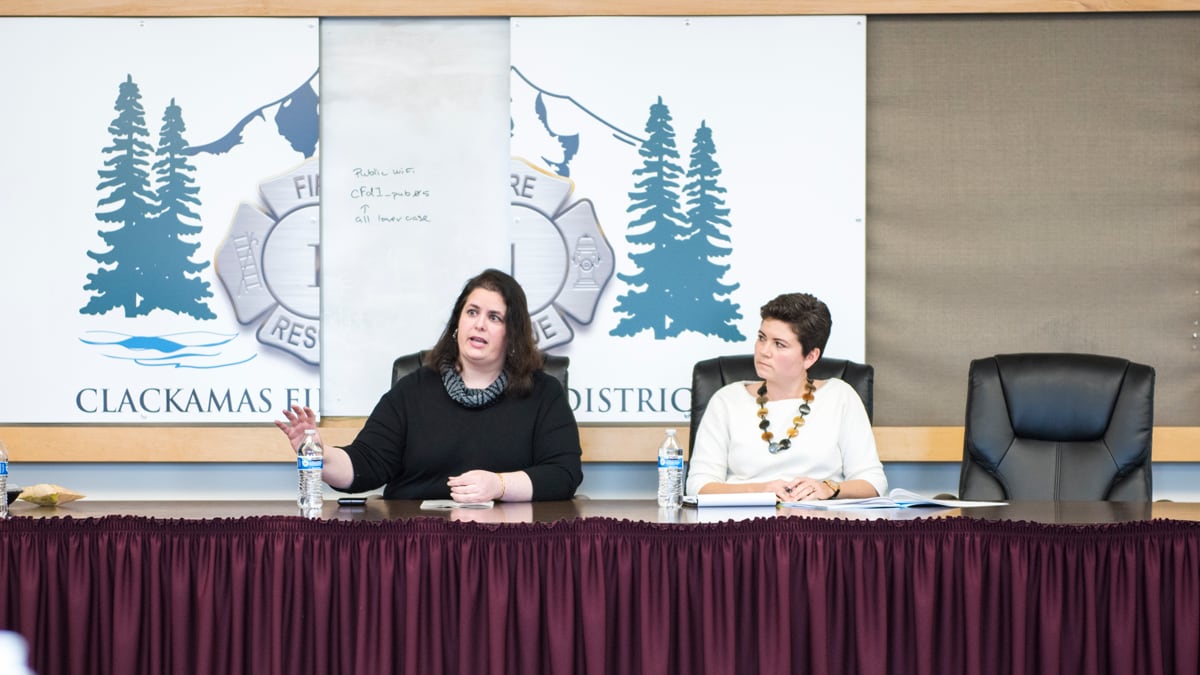A trio of sponsors—state Rep. Julie Parrish (R-West Linn), former Rep. Mark Johnson (R-Hood River) and Kim Sordyl, a Portland lawyer and education activist—want to put a measure on the 2020 ballot that would prohibit Oregon government bodies from borrowing money to pay their obligations to the Public Employee Retirement System.
The three filed paperwork yesterday with the Oregon secretary of state to amend the Oregon constitution.
Their initiative seeks to block a common practice: local governments and school districts borrow money to meet pension obligations. The governments' hope is that investment returns will exceed the cost of interest that they pay, creating a positive return on investment that they can use to accelerate paying down their PERS obligations.
Here's how the issuance of so-called "PERS bonds" are supposed to work: the borrower issues bonds that pay, for example, four percent interest. The borrower takes the proceeds of the bond issuance and invests them in stocks and private equity and earns, for the sake of argument, eight percent. That four percentage-point difference between borrowing costs and investment returns can then be applied to paying down PERS obligations. (And of course the exercise can fail if investment returns turn out to be less than the cost of borrowing. That has happened.)
The initiative Parrish, Johnson and Sordyl filed yesterday seeks to do two things: It would calculate the PERS system's unfunded liability (which is currently about $22 billion) as of Dec. 31, 2022 and freeze it at that level. (The unfunded liability is the difference between assets set aside to pay future pension obligations, i.e. savings and investments and the actual future liability). Second, the initiative would prohibit borrowing to meet PERS obligations, forcing government entities to pay their pension obligations out of current budgets.
Parrish and Johnson, who served on the Hood River School Board for seven years, both voted for pension reforms in Salem. Sordyl has regularly spoken out about the need to get more money to into K-12 classrooms.
"We cannot continue to tax and borrow our way out of pension obligations," Parrish says. "Fully funding pension obligations in the budget cycle in which the liabilities are incurred gives retirement surety to public employees.
"They will have the security that any dollars we put into their retirement are 100 percent available. But it also gives every government entity the ability to plan and budget, and taxpayers surety that they're not on the hook for billions of dollars of unfunded pension liability going into the future."
The petitioners now need to gather 1,000 signatures in order to begin the ballot title drafting process. If they meet that threshold, they then need to gather about 118,000 signatures to qualify for the 2020 ballot.

